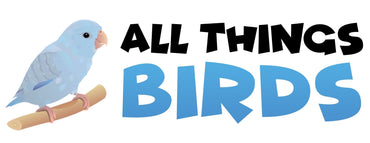Parrots are among the most popular pet birds in the world, and for good reason. These colorful and intelligent creatures can make wonderful companions and bring joy to their owners with their playful personalities and impressive vocal abilities. However, owning a parrot comes with a lot of responsibility, one of which is ensuring that they are fed a healthy and balanced diet. In this blog, we will discuss the importance of feeding parrots the correct diet and provide tips on how to do so.
Why is a proper diet important for parrots?
Like all animals, parrots need a balanced and nutritious diet to maintain their health and well-being. In the wild, parrots have a varied diet consisting of fruits, seeds, nuts, and insects. However, many parrots in captivity are fed a diet that is too high in fat and lacks the necessary nutrients they need to thrive.
A poor diet can lead to a variety of health problems in parrots, including obesity, malnutrition, and even death. Parrots that are fed an imbalanced diet may also develop behavioral issues, such as feather plucking and aggression.
Feeding your parrot the correct diet is essential to ensure that they live a long and healthy life. A balanced diet can help maintain a healthy weight, promote good digestion, and support a strong immune system.
What should be included in a parrot's diet?
A parrot's diet should consist of a variety of foods, including fresh fruits and vegetables, grains, and protein sources. The exact proportions of each food group will depend on your parrot's species, age, and activity level. Here are some general guidelines to follow:
- Fresh fruits and vegetables: These should make up the bulk of your parrot's diet. Dark leafy greens, such as kale and spinach, are excellent sources of vitamins and minerals. Other good options include carrots, sweet potatoes, bell peppers, and apples.
- Grains: Parrots can benefit from whole grains such as quinoa, brown rice, and millet. These foods provide essential nutrients and energy.
- Protein sources: Parrots need protein to maintain muscle mass and support their immune system. Good protein sources include beans, lentils, nuts, and seeds. Some parrot owners also feed their birds cooked eggs or small amounts of lean meat.
- Pellets: Many parrot owners choose to supplement their bird's diet with high-quality pellets. Pellets are formulated to provide a complete and balanced diet and can help ensure that your bird is getting all the nutrients they need.
In addition to these food groups, parrots also need access to clean water at all times. Water should be changed daily and provided in a clean bowl.
What should be avoided in a parrot's diet?
Some foods should be avoided when feeding your parrot. These include:
- Chocolate: Chocolate is toxic to parrots and should never be fed to them.
- Avocado: Avocado contains a toxin called persin, which can be harmful to parrots.
- Alcohol: Parrots should never be given alcohol, as it can cause serious health problems.
- Caffeine: Caffeine can be toxic to parrots and should be avoided.
- High-fat foods: Parrots can develop health problems from consuming too much fat. Foods to limit or avoid include cheese, fatty meats, and fried foods.
Conclusion
Feeding your parrot the correct diet is essential for their health and well-being. A balanced diet that includes fresh fruits and vegetables, grains, and protein sources can help maintain a healthy weight, promote good digestion, and support a strong immune system. By avoiding toxic foods and limiting high-fat foods, you can ensure that your parrot stays healthy and happy for years to come.
